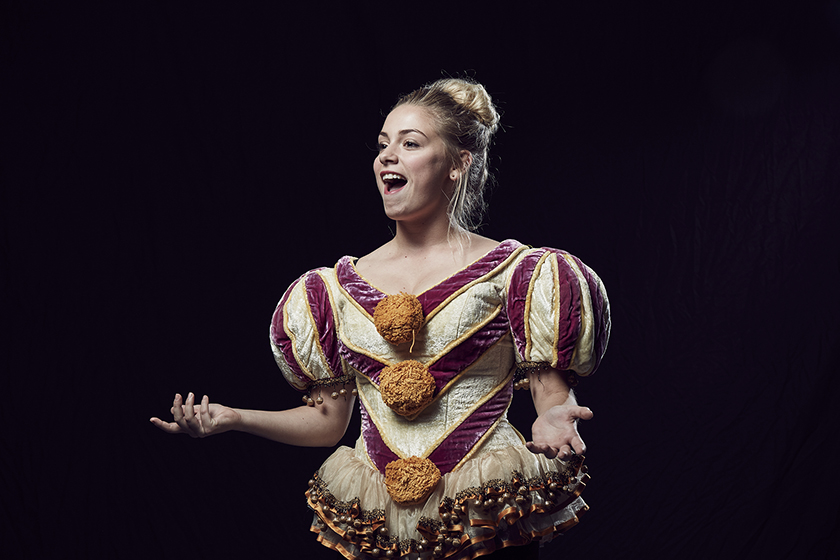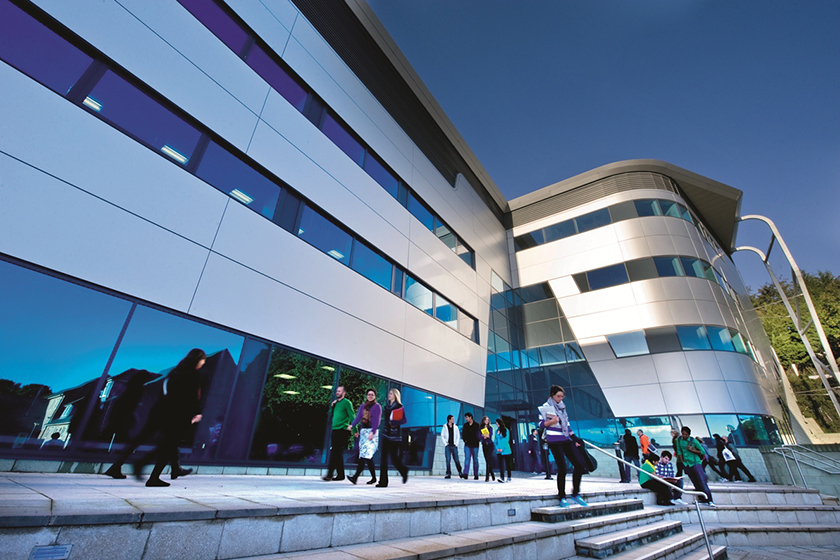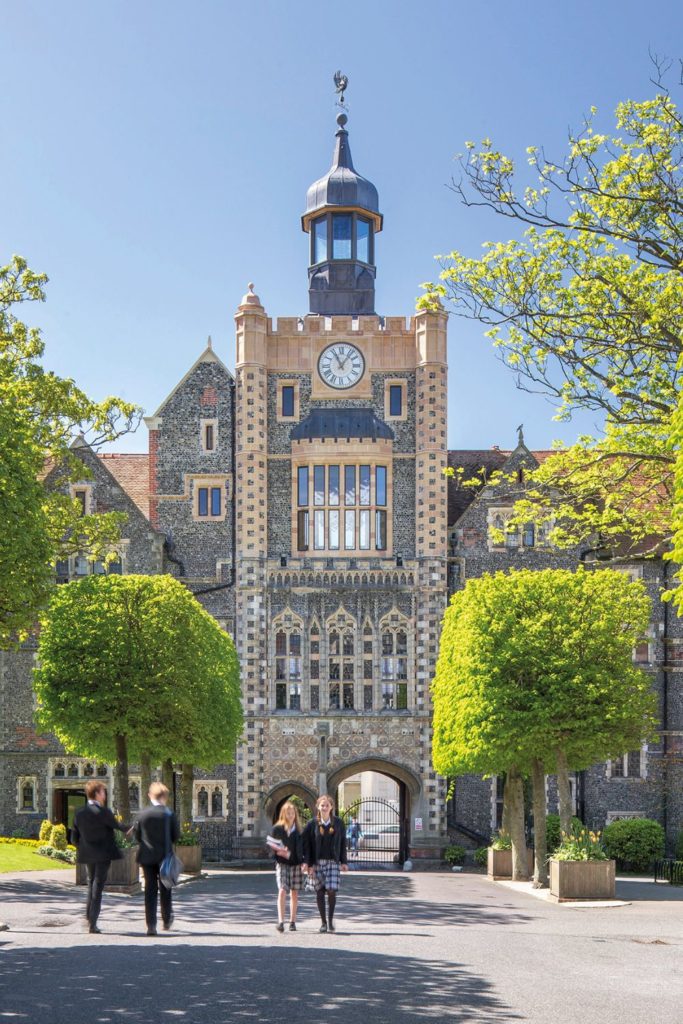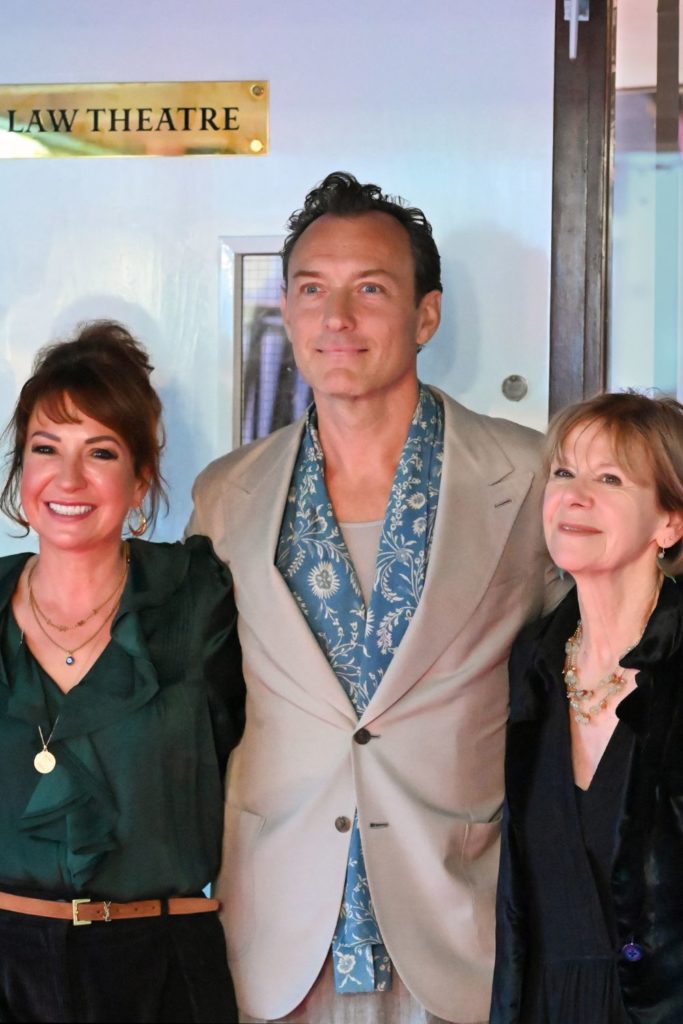The Best Specialist Colleges and Universities
By
8 years ago
What's your speciality?
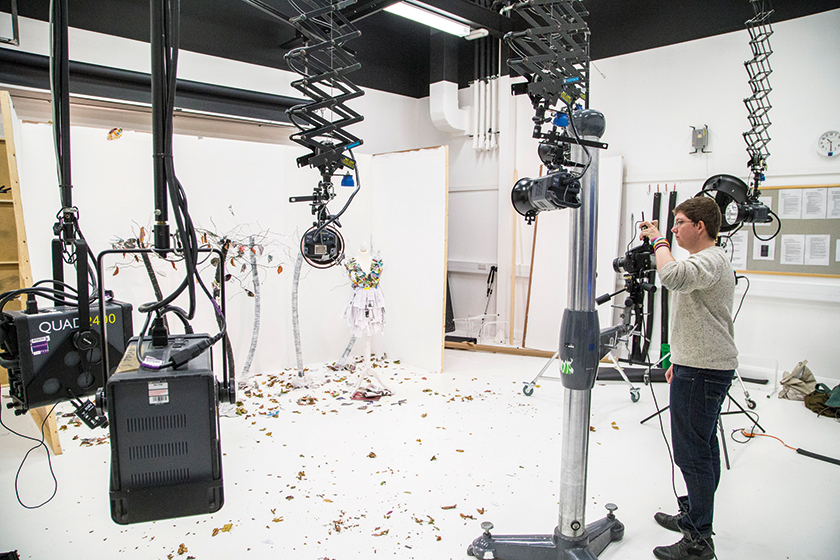
British schools and universities are getting better all the time at offering a world-class education in specialist areas, says Annabel Heseltine.
Britain has always been known for its specialist education, whether in the arts or other niche areas of education, and today it has turned this talent into a professional industry par excellence. Highly trained teachers, often professionals in the subjects themselves, extraordinary facilities and establishments funded and sponsored by the industry – thus ensuring a helping hand moving on afterwards – have attracted top talent from across the world.
Rise of the polytechnic
There are a number of smaller universities that have chosen to specialise in vocational subjects, and are now extremely good at what they do. And, in some cases, better. Take, for example, real estate management – one of the best places to do this – and considered to be so by those working in the sector – is Oxford Brookes, a former polytechnic.
Brookes is not the only former polytechnic to emerge like a phoenix out of the flames of destruction of the old university, polytechnic tertiary education ethos. Until 1992, polytechnics were associated almost entirely with vocational subjects, specifically STEM subjects and engineering, but now they too have embraced the arts as well as other subjects that are unlikely to be offered at the Russell Group universities.
Socially they were considered inferior and there was undoubtedly snob value attached to acceptance into a Russell Group university.
In 1992, keen to give the polytechnics a boost, the government passed the Further and Higher Education Act, which gave them the ability to award their own degrees and also injected a huge wad of cash.
The polytechnics responded, in most cases, by changing their names to university, but recognising that taking on the old giants at their own game was unlikely to be a successful course of action, they looked around to see how they could redefine themselves. And they found it in the plethora of modern careers that had opened up, many of which were in the arts and, until then, had not been offered as degree courses.
They invested heavily in facilities, which gave them flexibility with the type of programmes they could offer, enabling them to diversify in how these courses were taught. They are not overly reliant on lecture-based teaching and, often, offer courses with a practical inflection. With creditors including big businesses, the opportunities available for students post-university is on a par with some of the older universities, indeed higher in some specialist courses.
So now it is possible to take a degree in media studies, photography and, yes, real estate. Below, we walk through the best options for specialist subjects from sixth-form through to university.
Performing Arts
For the arts, this specialism can begin at the sixth-form stage, when parents with talented children have a choice. They can decide to keep their young protégés in mainstream independent school education, which offers a very high standard of education in the arts – it’s no accident that so many of our talented young actors herald from independent schools, consider Benedict Cumberbatch from Harrow and Eddie Redmayne from Eton. Or, they can choose one of the excellent specialist schools.
While both options offer a strong academic education, no one is being naïve about the need for a back-up plan. The difference is summed up by Stefan Anderson of the Tring Park School for Performing Arts: ‘What is extra-curricular in most schools is core here. Our students are being prepared for the industry.’
Tring is one of the nine MADE schools – music and dance schools – which also include (for music) the Purcell School, the Yehudi Menuhin School and Wells Cathedral School, and the Royal Ballet School for dance. All nine are funded by the government’s Music and Dance Scheme, designed to enable talented musicians and dancers to receive full-time education and training at a specialist school, irrespective of their parents’ financial means, and they offer means-tested bursaries of up to 100 per cent.
Theatre and Art
A theatrically gifted sixth-former might consider Hurtwood House, which annually secures five to ten places at drama schools; last year securing two out of the 24 places offered by RADA, beating 5,000 other applicants. Hurtwood charges £13,613 a term but, ‘you’re getting value for money,’ insists Doug Quinn, head of performing arts, citing the value pupils get for their fees, including an annual musical with a budget of £50,000, and two weeks of performances to which agents are invited, all done with ‘West End production values’ designed to get pupils into the industry.
But drama and music are only part of the picture. British art is revered across the world, even if it is not always understood, and London is a global Mecca for fashion. Central St Martins is known to be the best art school because it is the broadest, but it is only one of the six art schools belonging to the University of Arts, which has an international reputation; the others are Camberwell, Chelsea, Wimbledon, the London College of Fashion – sponsored by Vogue – and The London College of Communications.
‘Along with the City of Guild’s colleges, these are the art schools and colleges pupils should plump for,’ says James Barton, formerly of Mander Portman Woodward, a sixth-form college, and now director of the Elite Education Group, a specialist educational consultancy providing advice and viable options for pupils who require more careful guidance during their formative years, and who regularly channel pupils into specialist colleges. ‘They have the contacts and are often sponsored and funded by people in the industry, so will be reliable in finding a stepping stone for pupils to move onto afterwards.’
20 universities with specialist strengths
Anglia Ruskin
Arts courses
Birmingham City University
Healthcare, performing arts and technology
University of Brighton
Focuses on professional education and qualifications, including pharmacy and IT
Bournemouth University
Arts, film, media and photography
Coventry University
Building a reputation in economics
De Montfort University
Its English department in the past has achieved the same RAE (Research Assessment Exercise) as the University of Cambridge. It also has an institute of creative technologies. The university has the second highest number of national teaching fellows in the UK
University of South Wales
Nursing, midwifery and architecture
University of Greenwich
Specialist maritime management course among others
University of Hertfordshire
Pharmacy
Kingston University
Partnered with St George’s Medical School, providing health and social care education – nursing, midwifery, physiotherapy, radiography
Liverpool John Moores University
Sports and exercise science and new entrepeneur scholarship
Manchester Metropolitan University
Attracts higher research grants than most other new universities
Northumbria University
Engineering, health and physical sciences
Nottingham Trent University
Graphic design
Oxford Brookes University
Architecture, real estate and sports sciences
University of Plymouth
Medicine
University of Portsmouth
Chiropractic medicine
Sheffield Hallam University
Architecture and geography
University of the West of England
Sports and physiotherapy
University of West London
Music (London College of Music) and all filmmaking courses (Met Film School, Ealing Studios)


